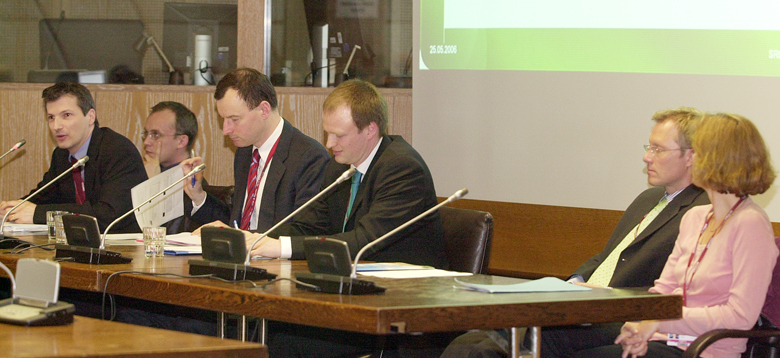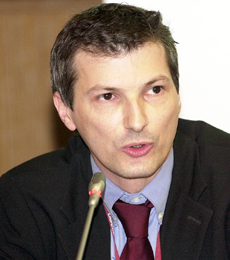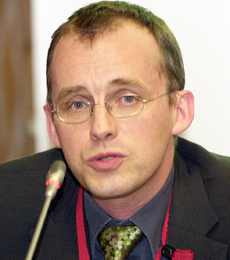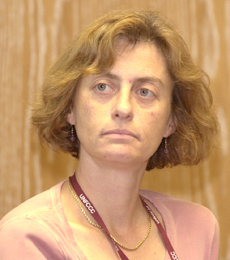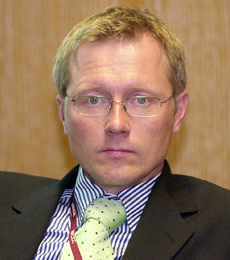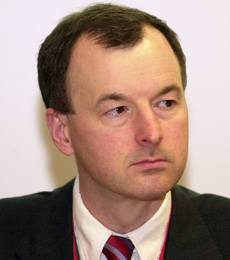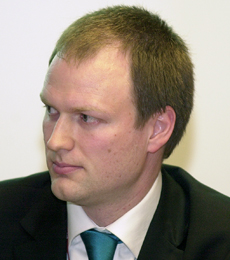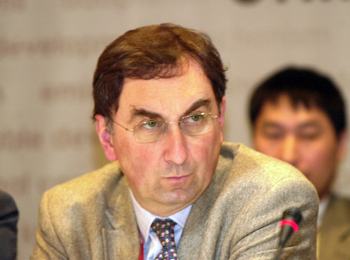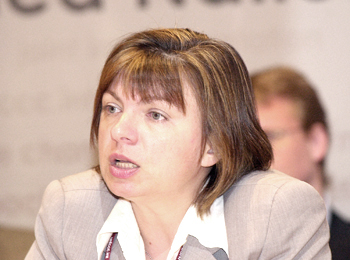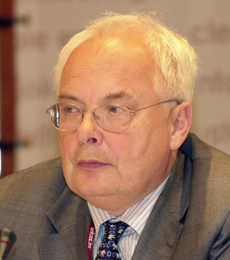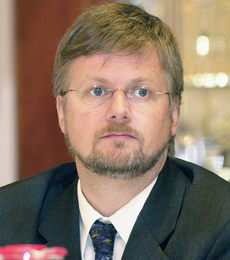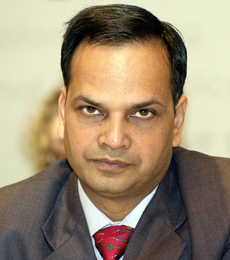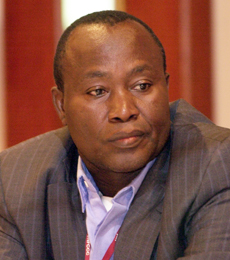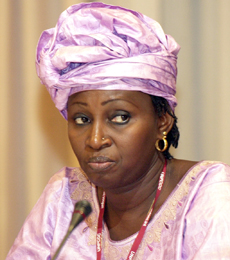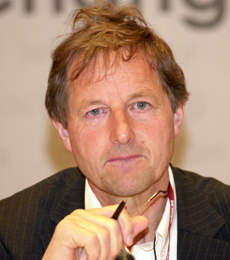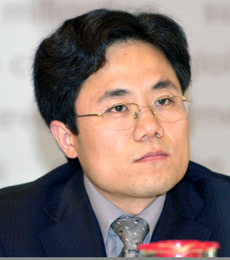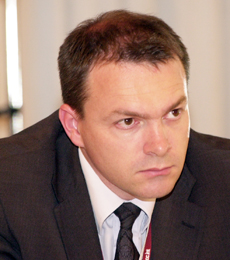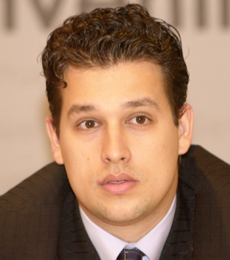 |
||
|
Published by the International Institute for Sustainable Development (IISD)
in cooperation with the UNFCCC Secretariat |
|||
|
Special Report on Selected Side Events at SB 24
|
|||||
| 15-26 May 2006 | Bonn, Germany | |||||
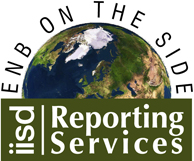 |
|||
 |
|||
Events convened on Thursday, 25 May 2006
|
CDM and JI programmes in the EU Presented by the European Commission |
|||||
|
Jürgen Salay, EC, said the EU ETS allows operators to use CDM credits from 2005 and JI credits from 2008, noting that a great variation exists on the extent to which Member States plan to use CDM/JI for compliance with the Kyoto Protocol. Wolfgang Diernhofer, Kommunalkredit Public Consulting, provided an overview of the Austrian CDM/JI programme. He noted that 47% of their CDM/JI projects are located in Asia and focus on wind energy, biomass, hydropower and landfill gas. Peter Wittoeck, Ministry of Health, Food Chain Safety and Environment, Belgium, noted that the Belgian CDM programme is a joint initiative between the federal and state governments. Jakob Forman, Ministry of the Environment, Denmark, described two purchase programmes under the foreign affairs and environment ministries that help the private sector to engage with the CDM and JI. Mika Sulkinoja, Ministry of the Environment, Finland, described Finnder, his country’s procurement programme for emission reductions from CDM/JI projects. He said Finland selects projects based on cost and risk rather than by project category or technology type. Marie-Claire Lheury, Ministry of Ecology, on behalf of Franck Jésus, Ministry of Economy, Finance and Industries, France, informed that French public and private entities are involved in over 60 CDM/JI projects. Sonja Butzengeiger, Federal Ministry for the Environment, Nature Conservation and Nuclear Safety, Germany, noted that her government supports private activities in CDM/JI although it does not intend to buy emissions certificates for compliance in the first period. Claudia Croce, Ministry for the Environment and Territory, Italy, highlighted that her government is investing in credit-generating facilities such as the Italian Carbon Fund, which excludes nuclear and large hydropower projects. Maurits Henkemans, Ministry of Economic Affairs, the Netherlands, emphasized that his country was an “early mover” in CDM/JI, noting that they were buying emission reductions credits while the Kyoto Protocol was not yet in force. Rebeca Sainz, Spanish Climate Change Bureau, highlighted the Kyoto compliance scenarios and emission reductions strategies in Spain, noting initiatives such as debt conversion arrangements through the Kyoto Protocol with Ecuador. Olle Björk, Ministry for Sustainable Development, Sweden, provided an overview of the Baltic Sea Region Testing Ground Agreement and Testing Ground Facility, launched in 1999. He explained that the Agreement facilitates JI activities, builds capacity and encourages early action. |
|||||
|
|||
|
Joint Implementation Supervisory Committee, question and answer session Presented by the UNFCCC |
|||
|
Daniela Stoycheva, Chair of the Joint Implementation Supervisory Committee (JISC), introduced the question and answer session by highlighting the “Montreal Decision” from COP/MOP 1, that established the JISC and elected its members and alternate members. She described JISC’s work over the past year and its future work plan including meetings, workshops, and mandates.
She stated that the JISC has met twice recently, noting that the meetings are efficient and transparent. She indicated that the Committee was able to plan its work for 2006, which they have delivered in a timely manner. She further explained that the work is informed by the experience of the CDM, which can frequently be transferred to the JISC’s work. Stoycheva highlighted the JISC’s mandates, including supervision of emission reduction units (ERUs) verification. She provided an overview of the JISC’s work programme, highlighting concern over how the JISC is going to link its responsibilities to financial resources. Stoycheva underscored the Committee’s limited timeframe in which to establish the procedures and determinations of JI projects in order to make JI Track 2 operational by mid-November, 2006. She emphasized that future JISC activities are subject to resource availability and strongly urged Annex I Parties to make prompt voluntary contributions. Janos Pasztor, UNFCCC Secretariat, provided an overview of the financial status of JI activities. He noted that as of 15 May, 2006, Annex I countries had pledged USD 1.3 million but that about USD 1 million had yet to be received. He stated that even if all pledges are received, there will still be a shortfall of nearly USD 2 million for 2006-07. He emphasized that without funding, no meetings or workshops beyond the third session of the JISC can be organized and that the JI Track 2 procedure cannot be launched. In response to a question regarding the utility of public consultations, Stoycheva explained that comments from people working on the ground help the JISC to “see the bigger picture.” Fatou Ndeye Gaye, Department of Livestock Services, the Gambia, responded to a question regarding the JISC members’ backgrounds by explaining that non-Annex I country representatives bring CDM knowledge to the Committee. In response to a question on the expected number of Track 2 projects, Stoycheva noted the impact of the EU Emissions Trading Scheme and said the JISC estimates that approximately 125 projects will come up for determination in 2007. Maurits Blanson Henkemans, Dutch Ministry of Economic Affairs, explained that a large proportion of projects are likely to come from Russia and the Ukraine once these countries establish their approval procedures. |
|||
|
|||
|
||
|
Click the above button to go back to our ENB main coverage
|
||
|
|
|
|
|
||
|
